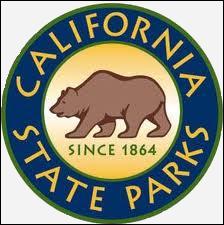by Laura Huggins

Case in point: Proposition 21, which if approved would impose an $18 vehicle-license surcharge to help fund state park and wildlife programs. As Bill points out, one would think the state’s most progressive paper would be “an automatic yes vote on an initiative that’s all about green grass and high tides.”
But guess again. The San Francisco Chronicle’s editorial board gave Prop 21 a thumbs down.
State finances are already dotted with similar walled-off financial pots, making budget-writing difficult. If this measure wins, other long-suffering groups might step forward with heart-tugging arguments for social services, law enforcement or health care. Voters may be fed up with Sacramento‘s financial paralysis—a notion that this measure caters to—but it robs Sacramento of the flexibility needed to set priorities and write a budget.
The article goes on to make the important points that“there is no clear connection between the tax source – vehicle fees – and the expense of running state parks.”
Backers say most park users arrive by car but the same could be said about nearly any activity in car-crazy California. Also, the day will surely come when the $18 fee isn’t sufficient, requiring another ballot measure to increase it. The fee, small as it may sound, hits low-income drivers harder than others.
Too bad the article didn’t go on to mention that, in the past, California State Parks has successfully entered into concessions that require private operators to finance, construct and run costly cabins and campground facilities that the state could not otherwise afford to build on its own. Contracting out park concessions seems like a no-brainer to consider as a viable alternative to budget cuts, park closures, and tax hikes. As Leonard Gilroy with the Reason Foundation writes in an upcoming article in PERC Reports (stay tuned!),
Even if policymakers believe that it is a core function of government to provide public recreation land and facilities, it does not then follow that government has to be the one to operate those facilities.


